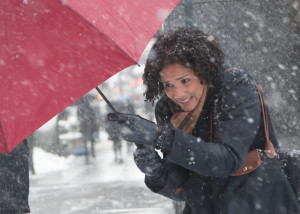
Whether it’s inclement weather or an emergency, it’s important to plan for the unexpected.
For dialysis patients, having an emergency plan is even more critical – missing treatments can be fatal.
In the event of a severe storm:
- Call your clinic if you think it could be closed. You can find the phone number on the Locations page of our website.
- Call your clinic if you will be late or are experiencing transportation problems. We will do our best to help you attend your scheduled dialysis treatments.
- For medical emergencies, dial 911.
To mitigate or avoid serious problems:
Always have a week’s supply of medications on hand.
Make a backup transportation plan for getting to dialysis if your normal plans fall through.
Carry a list of contact information for your dialysis clinic, doctor, dietitian, friends and relatives. Be sure your clinic has three different ways to reach you.
Have emergency diet food at home in case you can’t get to dialysis. When you can’t dialyze due to transportation, power or water problems, you still have to keep your blood values within normal limits until you can receive dialysis treatments again. You can do this by changing your diet. The emergency diet plan is not a substitute for dialysis, but will work for a short period of time (up to 5 days) when you can’t dialyze. Your dietitian can also help you select foods to help you survive if you are unable to get treatments.
Review additional emergency resources here.
Put together an emergency supply kit:
– Emergency diet food supply for three to five days
– Paper or plastic plates, cups, bowls, eating utensils
– Non-electric can opener
– Aluminum foil
– Battery-operated radio
– Flashlight
– Extra batteries
– Candles and matches in waterproof container
– First aid kit
– Sharp knife and scissors
– Paper towels
– Baby or sanitary wipes
– Garbage bags
– Gallon jugs of distilled water (one gallon per person per day)
– Bleach and eyedropper to purify water (16 drops per gallon of water)
Wear a medical alert bracelet so emergency medical staff will know you’re a dialysis patient and if you’re diabetic. You can order a medical alert bracelet though our pharmacy.
